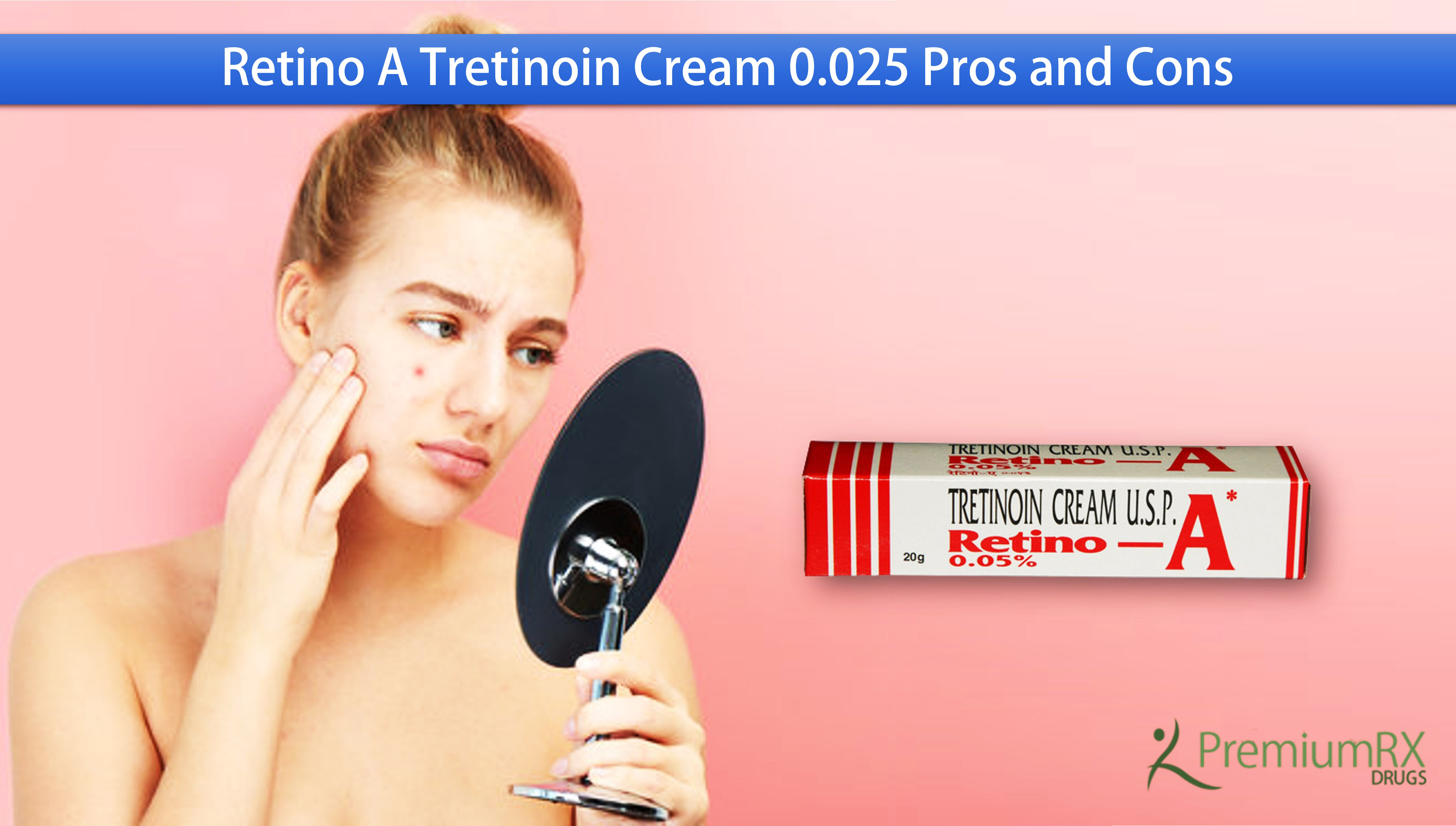Tretinoin can effectively treat acne, research suggests. It resolves acne problems and helps erase wrinkles, fine lines, and dark spots. Retino cream 0.025% contains Tretinoin, a derivative of vitamin A. It is applied on the skin to treat mild to moderate acne and all over the areas of skin damaged by excessive exposure to the sun. The active skincare ingredient causes the skin and causes the skin cells to grow and die more rapidly, increasing the turnover of cells. Let’s look at why your dermatologist might prescribe Tretinoin, how it works on acne and fine lines, and what you need to know more about.
What is Retino A cream 0.025 cream?
Retino A cream is a prescription-strength topical cream. It is mainly used to treat acne, fine wrinkles, and sun-damaged skin. Tretinoin, the product’s active ingredient, can speed up the life cycle of the skin cells. It makes them divide faster and die faster so that new and healthier cells can replace them. The topical skin treatment is not new. It has been treating mild to moderate acne for more than three decades. Research has shown that Tretinoin effectively reduces inflammation associated with acne, prevents follicular plugging, and exfoliates the skin.
What should you inform your dermatologist before using Retino A?
Speak to your dermatologist about the important facts related to the use of Retino A cream. Here are the things to mention when talking with your dermatologist:
- Pregnancy-There hasn’t been enough evidence yet to evaluate the safety of Tretinoin during pregnancy. If you are pregnant or plan to conceive, discuss the medication’s potential harms and benefits.
- Breastfeeding- It is unclear if acne medicine can pass through breast milk.
- Sun exposure- Let your dermatologist know if your job requires you to spend a lot of time in the sun.
- Medications- Share the list of all medications you are currently taking, including anything you put on the skin. Your dermatologist needs to know if there could be any drug interaction.
The Pros
There have been numerous studies that have demonstrated the beneficial effects of Retino A cream, including:
- Reducing the appearance of existing acne
- Preventing the formation of whiteheads, blackheads, and pimples
- Fading pigmentation marks
- Stimulation of collagen and elastin production
- Reduction in fine lines and wrinkles
- Reduction of excess oil production
- A smoother skin textures
- Reduction in size and number of skin pores
- A healthier and more youthful glow to the skin
So, how did researchers find out? Well, Tretinoin has been used to treat acne for a long time, and when it was applied to the skin, people noticed that their skin not only improved from an acne perspective but also started looking clear and smoother.
In people with acne, new cells replace the cells of existing pimples, and the rapid turnover of cells prevents the formation of new pimples. By following a similar mechanism of action, Tretinoin reduces the appearance of wrinkles, hyperpigmentation (areas of darkened skin), and rough areas of the skin, which occur due to sun damage.
In those with sun-damaged skin, improvements in the skin usually appear within the first 3 to 4 weeks of treatment. Brown/dark spots begin to disappear after six to eight weeks. The appearance of wrinkles reduces after there to six months.
The Cons
One of the biggest downsides of Retino A cream 0.025% from users’ perspective is that it is a targeted treatment product and needs to be added to one’s cleanser, moisturizer, serum, etc. This all adds up and may become an expensive option for some people. Unfortunately, Tretinoin can produce adverse reactions, including:
- A burning feeling or stinging sensation of the skin is usually mild and lasts for a short duration after applying the product.
- Dryness and mild peeling of the skin
- Increased sun sensitivity is best to wear an SPF of at least 30 when using Retino A as part of your skincare regimen.
However, the side effects subside when one stops using the retinoid preparation. If they follow their dermatologist’s advice carefully on introducing the medication into their skincare regimen, the above adverse effects will be reduced to a minimum with maximum antiacne and antiaging benefits.
The final word
Tretinoin helps treat acne and is easy to apply to your skin. At the same time, it can make your skin more sensitive to sunlight, increasing the risk of sunburn. With any medication, there are associated risks and benefits. Talk to a health care professional before using Retino A Tretinoin 0.025%.
Latest posts by Marie (see all)
- Amiodar 200mg Tablet: Uses, Dosage, Side Effects & Safety Guide - December 24, 2025
- HCG 5000 IU Injection Online: Uses, Benefits, Dosage & Price - December 23, 2025
- What is an Antifungal Cream and How Does it Work? - December 19, 2025




